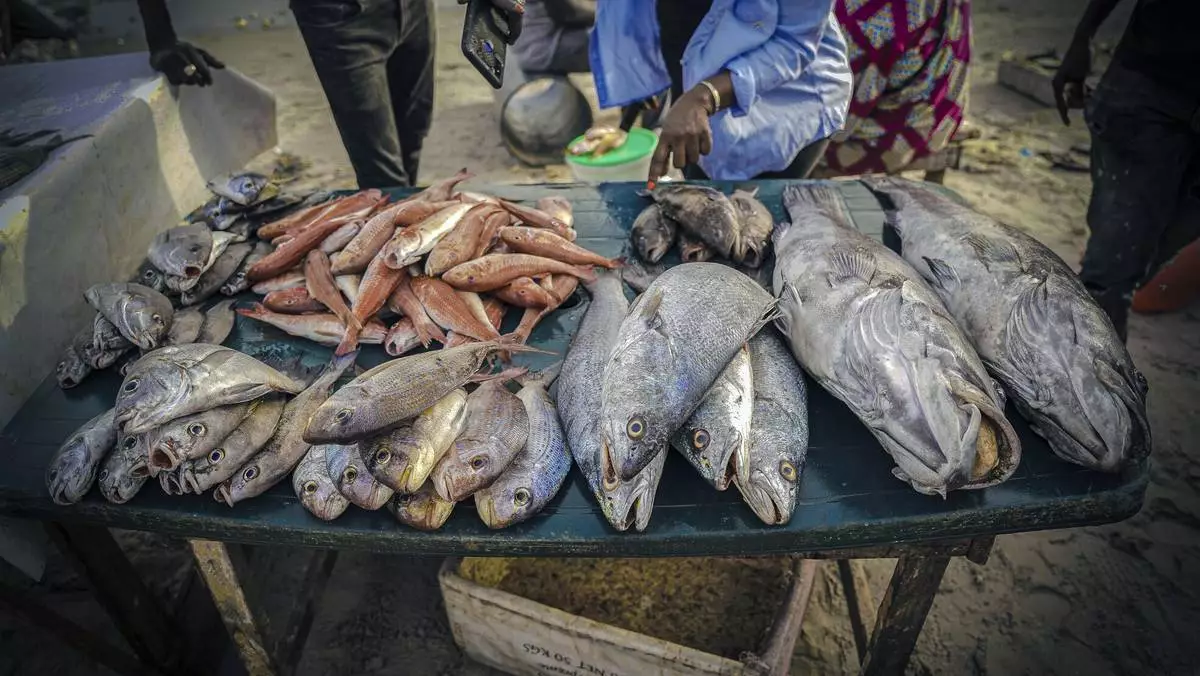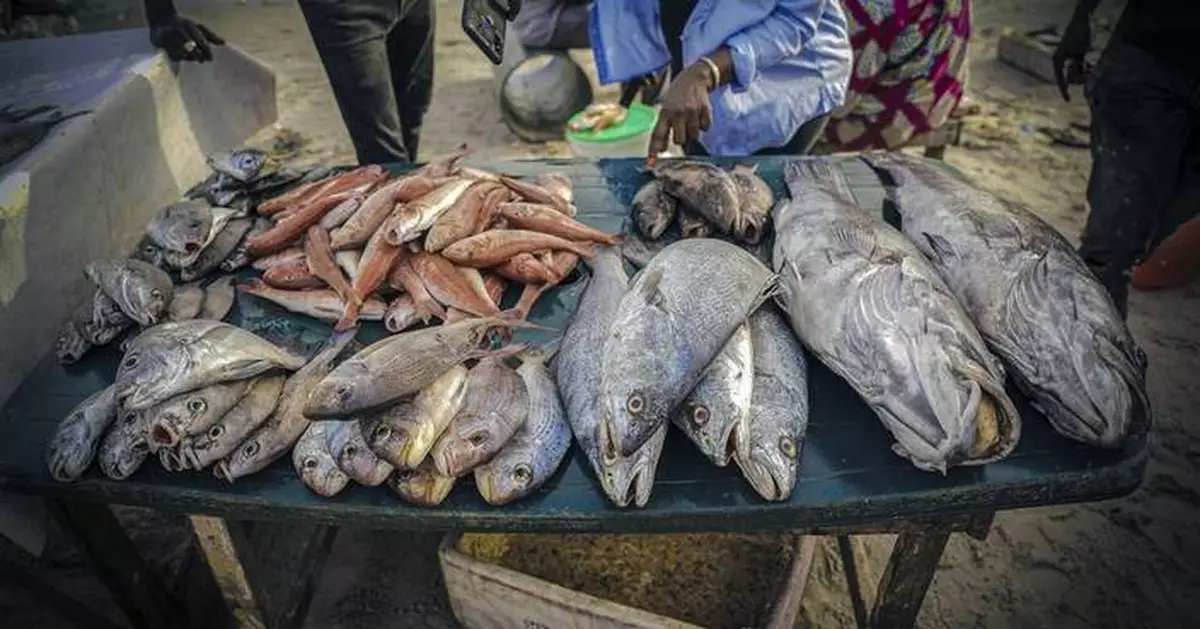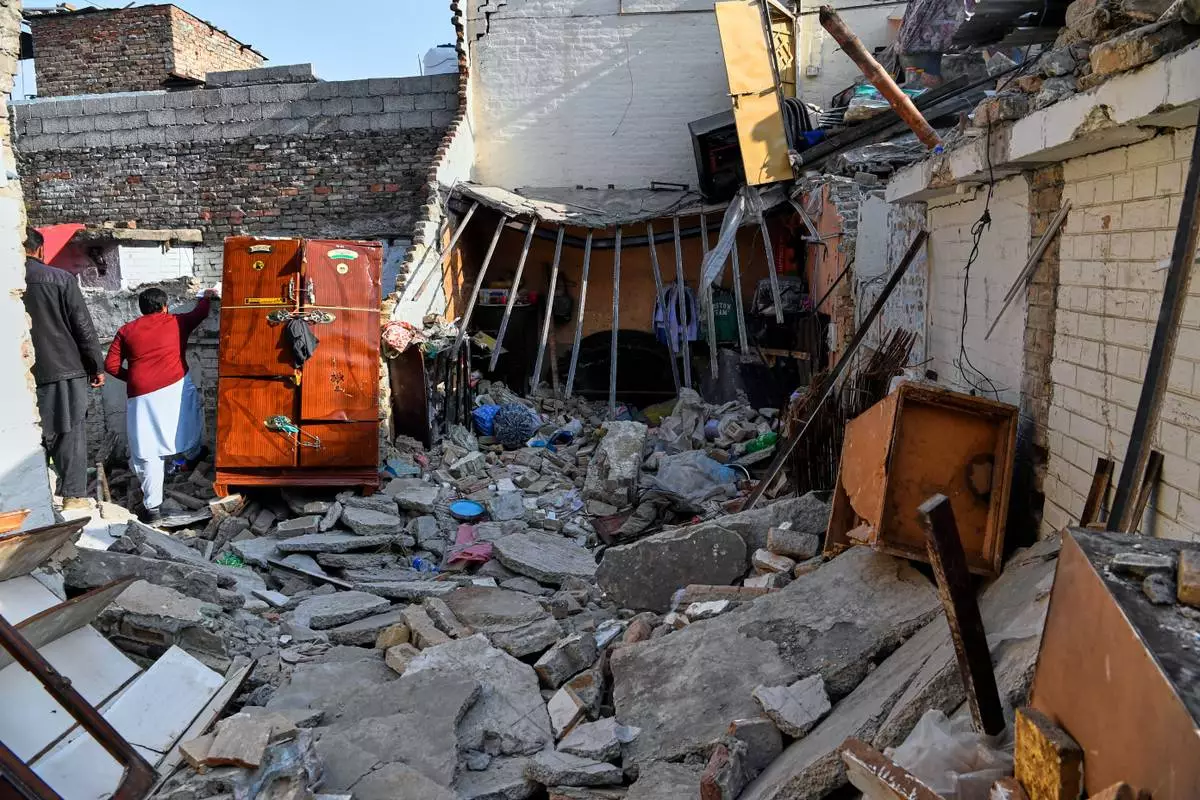DAKAR, Senegal (AP) — Overfishing by foreign vessels is decimating fish stocks in the West African country of Senegal, which is in turn fueling migration to Spain, according to a report released Tuesday.
The Environmental Justice Foundation, a London-based group specializing in environmental and human rights issues, said illegal overfishing and destructive practices by foreign vessels are responsible for increased irregular migration to Spain. It based its conclusions on interviews with fishermen in Spain and Senegal and its prior research on foreign overfishing.
The group found that 57% of fish stocks in Senegal are in a “state of collapse,” with foreign vessels playing a significant role in declining numbers. Its analysis showed 43.7% of licensed vessels in Senegal are foreign-controlled, predominantly of Spanish and Chinese origin.
As fish populations dwindle, local fishermen are facing income loss, and many have turned to migration as a last resort. Fishing is an important economic sector in Senegal that employs 3% of the workforce.
Irregular migration to the Canary Islands almost doubled in 2024, according to the Spanish Interior Ministry, reaching 46,843. While exact figures aren’t known due to a lack of information on departures from West Africa, Senegal is one of the top three nationalities of arrivals to the Spanish islands.
The Atlantic route from West Africa to the Canary Islands is one of the deadliest in the world. The Spanish migrant rights group Walking Borders estimates the victims were in the thousands last year.
Migrants and former fishermen in the Canary Islands told the Environmental Justice Foundation that the treacherous journey to Spain was a last resort, a way to provide for families when fishing in Senegal could no longer put food on the table.
“If I was able to gain enough money in fishing, I would never have come to Europe,” said Memedou Racine Seck.
Local activists in Senegal have voiced their frustration with foreign overfishing and its contribution to the migration crisis. Karim Sall, President of AGIRE, a Senegalese organization operating in the Joal-Fadiouth marine protected area, condemned foreign nations for their role in the crisis.
“I get so angry when (foreign nations) complain about immigration because they are the real pirates and what they did is worse than clandestine immigration. It’s theft, plundering our resources to feed their own inhabitants while we suffer,” said Sall.
Industrial foreign fleets, many of which use bottom trawling techniques, are exacerbating the crisis. These vessels drag heavy nets across the seafloor, indiscriminately catching young fish and destroying marine ecosystems like seagrass and coral reefs, which are vital for fish reproduction. As a result, fish stocks are unable to recover, deepening the hardships of local fishing communities and eaters. Fish plays an important role in food security in Senegal, especially for protein consumption. Due to declining fish stocks, consumption per capita in Senegal has fallen from 29 kilograms per year to 17.8 kilograms per person.
The report also pointed to a lack of transparency in fishing licenses and inadequate government management of fisheries as contributing factors. Despite efforts by the Senegalese government to address the crisis, experts warn that without stricter regulations on industrial foreign fleets, the situation will worsen.
Migrant and former fisherman Souleymane Sady, who arrived in the Canary Islands in 2020, summed up the situation fishermen in Senegal face: “Since the government cannot regulate the boats and we cannot work normally, we choose to run away from the country to come for stability,” he said.
Follow AP’s Africa coverage at: https://apnews.com/hub/africa

FILE - Various species of fish are displayed at the Soumbedioune fish market in Dakar, Senegal, May 31, 2022. (AP Photo/Grace Ekpu, File)










